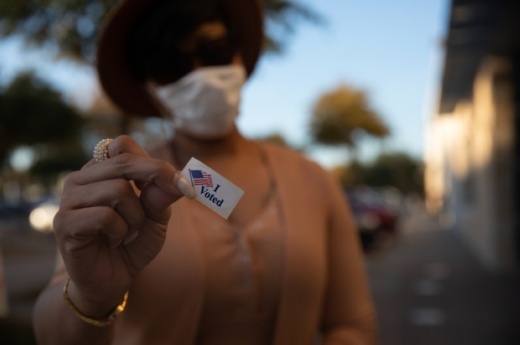Voters will find eight propositions to amend the state constitution on the Nov. 2 ballot. Community Impact Newspaper spoke with Brandon Rottinghaus, the University of Houston’s political science chair, to break down each proposition. See what else is on your ballot with our Voter Guide.
Proposition 1: rodeo raffles
House Joint Resolution 143
What is it asking?
This proposition allows voters to decide whether charities for teams sanctioned by the Professional Rodeo Cowboys Association or Women’s Professional Rodeo Association can hold charitable raffles. According to Rottinghaus, these ra ces need to be approved through a constitutional amendment to avoid falling foul of Texas’ gambling laws.
Proposition 2: county infrastructure bonds for blighted areas
House Joint Resolution 99
What is it asking?
Proposition 2 will determine whether counties can authorize bonds or notes to finance development in blighted or underserved areas. Rottinghaus described the amendment as a “shortcut” for county funding and said it could help urban counties going through a population boom.
Proposition 3: religious services
Senate Joint Resolution 27
What is it asking?
This proposition will decide if state or local governments can limit religious services. Rottinghaus said this measure likely stems from COVID-19 mitigation efforts in 2020, when in-person religious services were limited in parts of Texas, such as Harris and Fort Bend counties.
Proposition 4: judicial eligibility limitation
Senate Joint Resolution 47
What is it asking?
This proposition would update requirements to serve on the Texas Supreme Court, the Texas Court of Criminal Appeals, the Texas Appeals Court or as a district judge. It would require 10 years of service as a practicing lawyer or a combined 10 years of service in legal practice and as a judge of a state or county court.
Proposition 5: judicial conduct limitation
House Joint Resolution 165
What is it asking?
Voters can decide whether the Texas Commission on Judicial Conduct, which is responsible for disciplining sitting judges, can extend its powers to candidates for the office of a judge in Texas, allowing the commission to conduct investigations, accept complaints and disqualify candidates not in office.
Proposition 6: essential caregivers
Senate Joint Resolution 19
What is it asking?
Proposition 6 asks voters to decide whether residents of facilities such as nursing homes have the right to determine an essential caregiver who can visit without restrictions. Rottinghaus said this proposition also stemmed from COVID-19 mitigation measures affecting some care facilities.
Proposition 7: homestead tax limitation for surviving spouses of people with disabilities
House Joint Resolution 125
What is it asking?
This will determine whether surviving spouses of disabled people can receive limitations on the amount of property taxes they pay on their homesteads, provided they were age 55 or older when their partner died.
Proposition 8: homestead tax limitation for surviving spouses of armed service members
Senate Joint Resolution 35
What is it asking?
Proposition 8 allows voters to decide whether surviving spouses of armed service members who died in the line of duty will be exempted from all or part of property taxes on homesteads.





